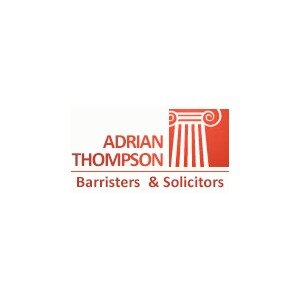Best Conveyancing Lawyers in Basseterre
Share your needs with us, get contacted by law firms.
Free. Takes 2 min.
Free Guide to Hiring a Real Estate Lawyer
List of the best lawyers in Basseterre, St Kitts and Nevis
About Conveyancing Law in Basseterre, St Kitts and Nevis
Conveyancing is the legal process of transferring the ownership of real property from one person or entity to another. In Basseterre, St Kitts and Nevis, conveyancing law plays a crucial role in ensuring property transactions are conducted smoothly and lawfully. The process involves a series of legal steps designed to protect the interests of both buyers and sellers. Conveyancing typically includes preparing and reviewing contracts, conducting title searches, preparing the necessary legal documents, and ensuring that government duties and taxes are paid. It is important to understand that conveyancing in St Kitts and Nevis has its unique legal framework, influenced by local statutes and established practices.
Why You May Need a Lawyer
While some aspects of property transactions may seem straightforward, many situations require the expertise and guidance of a qualified lawyer. Here are some common scenarios where legal help is essential:
- When buying or selling residential or commercial property
- If you are a non-national interested in acquiring property, given the specific restrictions and requirements
- When there are questions about clear title or boundary disputes
- During the transfer of property as part of an inheritance or estate settlement
- When dealing with property held in trust or by multiple parties
- If property is mortgaged or has liens registered against it
- If you are developing or subdividing land
- When contract terms are complex or non-standard
- To ensure compliance with all local laws and payment of related government duties and taxes
Engaging a legal professional ensures your rights are protected, helps avoid costly mistakes, and streamlines the entire transaction process.
Local Laws Overview
Conveyancing in Basseterre, St Kitts and Nevis is governed by a mix of statutory law and established property practices. Some of the key aspects relevant to conveyancing include:
- Real property transactions must be documented in writing and registered at the Land Registry to be legally recognized.
- There are restrictions on land ownership by non-nationals, who are usually required to obtain an Alien Landholding Licence before purchasing property.
- All property sales attract government duties, including Stamp Duty and Alien Landholding Licence fees when applicable.
- Title searches are critical to confirm ownership, check for encumbrances, and ensure there are no outstanding liens or judgments against the property.
- The Conveyancing and Law of Property Act, as well as the Registered Land Act, provide the main legal framework for property transactions.
- Deeds, transfers, and other required forms must comply with the format prescribed by local regulations.
- Failing to properly register the transaction can impact your lawful ownership and the ability to later sell or mortgage the property.
Given the intricacies of local laws, legal advice is highly recommended for anyone engaging in conveyancing transactions.
Frequently Asked Questions
What is the first step in the conveyancing process in Basseterre?
The first step is generally to engage a lawyer who will draft or review the sale and purchase agreement, followed by conducting a title search to ensure the property can be legally transferred.
Do non-residents face restrictions when buying property?
Yes, non-nationals must obtain an Alien Landholding Licence before buying property. The process requires application to the Ministry of Finance and payment of a government fee.
What taxes and fees are involved in a property transfer?
Typical costs include stamp duty, legal fees, and, for non-nationals, the Alien Landholding Licence fee. Both buyers and sellers should budget for these expenses.
How long does conveyancing usually take?
The process can take several weeks to a few months, depending on the complexity of the transaction and whether all required documentation is promptly provided.
Do I need a lawyer if I am selling property?
While not legally mandatory, having a lawyer helps ensure the sale complies with all legal requirements and protects you from future claims or liabilities.
Can I buy land jointly with another person?
Yes, joint ownership is permitted, but specific legal arrangements can determine how the property is held and what happens in the event of death or dispute.
What if the property has an outstanding mortgage?
Your lawyer can assist in clearing the mortgage prior to or as part of the sale process, ensuring that the new owner receives clear title.
Are verbal agreements enforceable in property sales?
No, property transactions must be in writing and registered to be valid and enforceable under local law.
What are some common issues that can delay conveyancing?
Delays are often caused by unresolved title issues, missing documentation, unpaid taxes, or delays in obtaining government approvals such as the Alien Landholding Licence.
How is property inherited or transferred upon death?
Inheritance is subject to local laws and may require probate of the deceased's will or application of intestacy laws if there is no will. A lawyer can guide you through the required process.
Additional Resources
For additional information and support, you may consider contacting the following local resources:
- St Kitts and Nevis Land Registry - responsible for the registration of property transfers and documentation
- Ministry of Justice and Legal Affairs - for guidance on property laws and regulations
- Ministry of Finance - handles Alien Landholding Licence applications
- Bar Association of St Kitts and Nevis - directory of licensed attorneys with experience in conveyancing
- Local real estate agencies - often have practical experience with local property transaction procedures
Next Steps
If you are considering a property transaction in Basseterre, St Kitts and Nevis, your priority should be to consult with a qualified local lawyer. An experienced legal professional can evaluate your situation, guide you through the process, and help prevent legal complications. Prepare all relevant documentation, such as proof of identity, property documents, and details of the transaction. Schedule a consultation to discuss your options and clarify any concerns you have. Remember, investing in professional legal advice can save time, reduce stress, and protect your investment in the long term.
Lawzana helps you find the best lawyers and law firms in Basseterre through a curated and pre-screened list of qualified legal professionals. Our platform offers rankings and detailed profiles of attorneys and law firms, allowing you to compare based on practice areas, including Conveyancing, experience, and client feedback.
Each profile includes a description of the firm's areas of practice, client reviews, team members and partners, year of establishment, spoken languages, office locations, contact information, social media presence, and any published articles or resources. Most firms on our platform speak English and are experienced in both local and international legal matters.
Get a quote from top-rated law firms in Basseterre, St Kitts and Nevis — quickly, securely, and without unnecessary hassle.
Disclaimer:
The information provided on this page is for general informational purposes only and does not constitute legal advice. While we strive to ensure the accuracy and relevance of the content, legal information may change over time, and interpretations of the law can vary. You should always consult with a qualified legal professional for advice specific to your situation.
We disclaim all liability for actions taken or not taken based on the content of this page. If you believe any information is incorrect or outdated, please contact us, and we will review and update it where appropriate.










